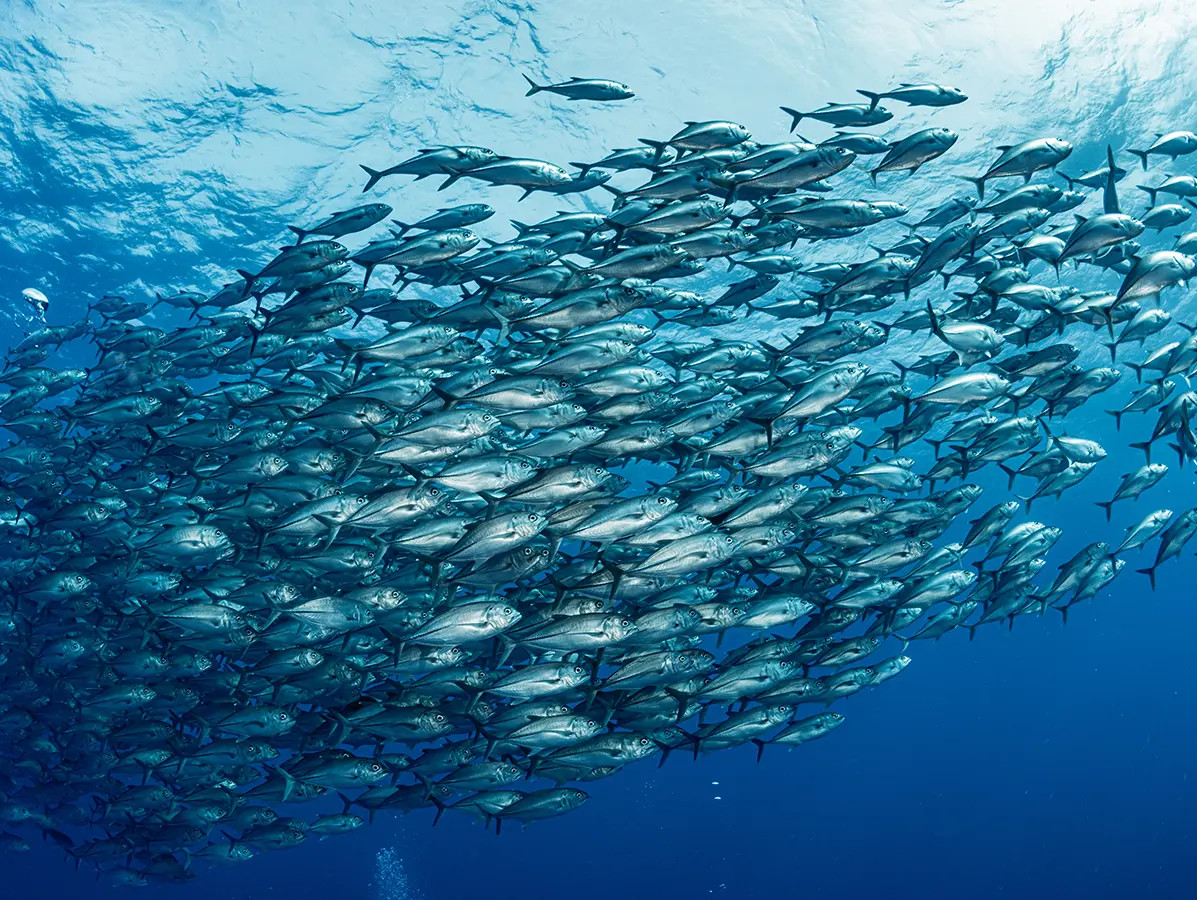
The availability of certified pelagic fish species is under pressure. This is highlighted in the Small Pelagics Yearbook 2025 by the Marine Stewardship Council (MSC), which focuses on developments in herring, mackerel, sardines and anchovies. These species play an important role as a food source in marine ecosystems and are also essential for human consumption. In 2024, over 3 million tonnes of MSC-certified small pelagic fish were caught worldwide—representing 12 percent of the total catch in this category.
According to MSC, climate change is causing shifts in fish populations, putting strain on existing agreements between countries. The distribution of catch quotas is increasingly a topic of contention. In the Northeast Atlantic, herring, mackerel and blue whiting have lost their certification. Over the past seven years, average catches exceeded scientific recommendations by 31 percent. This limits the availability of certified fish and may affect prices and volumes on the market.
The North Sea herring fishery remains MSC certified. It has been part of the certification programme since 2008, with recertifications in 2017 and 2022. “North Sea herring is now a crucial source of MSC-certified herring,” MSC states. The Chilean horse mackerel fishery is also highlighted as a positive example. Since its certification in 2019, catches have increased to 667,838 tonnes in 2023. International cooperation through the South Pacific Regional Fisheries Management Organisation (SP-RFMO) contributed to stock recovery. European market players are now considering horse mackerel as an alternative to Atlantic mackerel.
View the report: ‘Small Pelagics Yearbook 2025’
Msc.org
Source: Marine Stewardship Council (MSC)